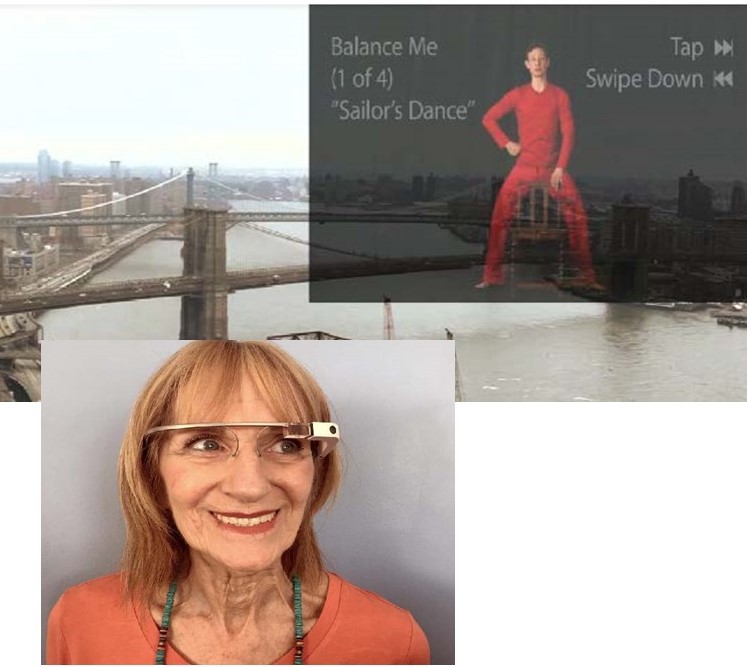Session Information
Date: Saturday, October 6, 2018
Session Title: Parkinson’s Disease: Clinical Trials, Pharmacology And Treatment
Session Time: 1:45pm-3:15pm
Location: Hall 3FG
Objective: To investigate the acute and long-term effects of a mobile, augmented reality-based extension of Dance for PD® classes on balance and mobility in persons with Parkinson’s disease (PD).
Background: The favorable effects of dance on improving the symptoms of persons with PD is well documented. Augmented reality technologies, such as Google Glass, may increase accessibility and improve long-term adherence to dance by persons with PD. This pilot study investigated the acute and long-term effects of a mobile, augmented reality-based extension of Dance for PD® classes on balance and mobility in persons with PD.
Methods: Seven individuals with PD were evaluated at baseline for balance and mobility, using Mini-BESTest, with a focus on single-leg stance test and dual-task. On the same day, participants were given a 20-minute demonstration on how to use the Google Glass preloaded with Moving Through Glass (MTG) dance modules [Figure1]. The motor assessments were repeated after single session of MTG, and at the end of 3-week intervention.
Results: Participants (69±5.5 years and 7±7 years with PD) were consistent self-reported non-fallers (n=4) and fallers (n=3). No falls or injury were reported during use of the MTG modules. No differences were observed in Mini-BESTest overall scores before or after the immediate or long-term use of MTG. The single-leg stance test revealed significant improvement in balance after acute (t(6)=3.28, p<0.05) but not long-term use (t(6)=1.25, p>0.05) of MTG compared to baseline. Long-term use of MTG improved the dual-task cost (t(6)=2.76, p<0.05).
Conclusions: The use of MTG as a mobile dance intervention for persons with PD to improve balance and mobility is promising. However, based on these results, a more comprehensive study with a larger sample number and a control group is warranted in order to optimize the intervention and assess its risks and benefits.
To cite this abstract in AMA style:
T. Tunur, K. Rickford, A. DeBlois, E. Horton-Yates, L. Columna. Augmented Reality-Based Dance Application on Balance and Mobility of Individuals with Parkinson’s Disease: A Pilot Study [abstract]. Mov Disord. 2018; 33 (suppl 2). https://www.mdsabstracts.org/abstract/augmented-reality-based-dance-application-on-balance-and-mobility-of-individuals-with-parkinsons-disease-a-pilot-study/. Accessed October 22, 2025.« Back to 2018 International Congress
MDS Abstracts - https://www.mdsabstracts.org/abstract/augmented-reality-based-dance-application-on-balance-and-mobility-of-individuals-with-parkinsons-disease-a-pilot-study/

